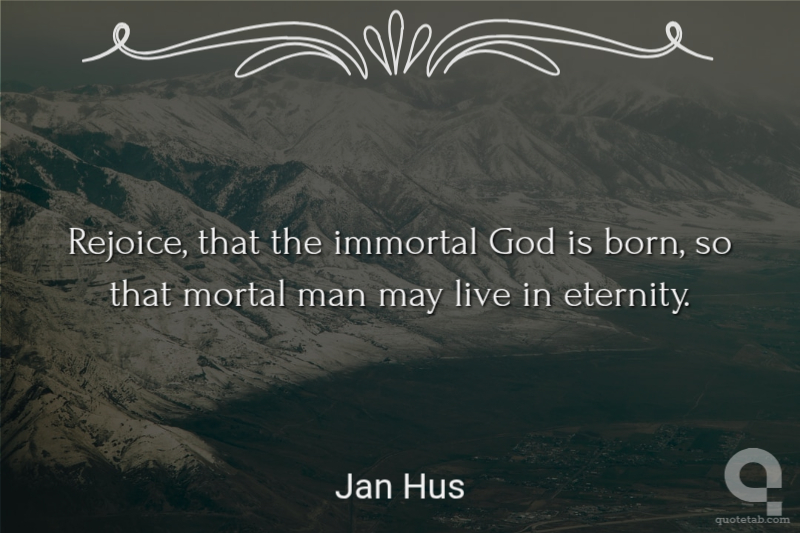Related Quotes
christmas winter lion-the-witch-and-the-wardrobe
Always winter but never Christmas. C. S. Lewis
christmas effort thinking troops understand
We want everyone to understand that this effort didn't end at Christmas. Our troops need to know someone's thinking about them. Bruce Johnson
christmas easter home
People tend to stay at home and eat a home-cooked meal. There are three days that are really slow for restaurants - Thanksgiving, Christmas and Easter. Alan K. Simpson
christmas lying excellence
The excellence of a gift lies in its appropriateness rather than in its value Charles Dudley Warner
christmas men feelings
Christmas time! That man must be a misanthrope indeed, in whose breast something like a jovial feeling is not roused - in whose mind some pleasant associations are not awakened - by the recurrence of Christmas. Charles Dickens
christmas children sometimes
For it is good to be children sometimes, and never better than at Christmas, when its mighty Founder was a child Himself. Charles Dickens
christmas men alive
And it was always said of him, that he knew how to keep Christmas well, if any man alive possessed the knowledge. May that be truly said of us, and all of us! And so, as Tiny Tim observed, God bless Us, Every One! Charles Dickens
christmas honesty hands
Christmas was close at hand, in all his bluff and hearty honesty; it was the season of hospitality, merriment, and open-heartedness; the old year was preparing, like an ancient philosopher, to call his friends around him, and amidst the sound of feasting and revelry to pass gently and calmly away. Charles Dickens
christmas new-year years
A merry Christmas to everybody! A happy New Year to the world! Charles Dickens
men position-of-power promise
Men, if you are in a position of power or authority, please respectfully continue to mentor and work with talented individuals and those with promise, regardless if they are men or women. Carol Roth
men decision stuff
All my other relationships with men, there was so much maneuvering and strategic decisions and stuff. Carol Leifer
men doors white
It's time to take the 'Men Only' sign off the White House door. Carol Moseley Braun
men talking years
I have had stalkers over the years. The police deal with it but it is very scary. One man kept turning up where we filmed 'Countdown in Leeds,' which was scary. It was sad as he'd been sectioned and thought I was talking to him through the TV. Carol Vorderman
men men-and-women
The women I have loved I have desired for themselves, but also because I feared myself. Carlos Fuentes
men self enemy
Self importance is man's greatest enemy. Carlos Castaneda
men metaphysical ifs
Man lives only to learn. And if he learns it is because it is the nature of his lot, for good or bad. Carlos Castaneda
men world life-is
We are men and our lot in life is to learn and to be hurled into inconceivable new worlds. Carlos Castaneda
men inventory energy
The greatest flaw of human beings is to remain glued to the inventory of reason. Reason doesn't deal with man as energy. Reason deals with instruments that create energy, but it has never seriously occurred to reason that we are better than instruments: we are organisms that create energy. We are bubbles of energy. Carlos Castaneda
may traitor very-true
It is very true. But even a traitor may mend. I have known one who did. C. S. Lewis
may drink thirst
If you thirst you may drink. C. S. Lewis
may idiot lion-witch-wardrobe
I see you are an idiot, whatever else you may be... C. S. Lewis
may matter reason-why
But I see no reason why a woman should not grow and develop in all those outlets which are suited to her nature, it matters not at all what they may be. Agnes Smedley
may fool stories
Humans know when it's not a good story. Unless you do this for a living, you may not know exactly why you don't like a story, but you can't fool an audience ever. They know when you have it and they know when you don't. Aaron Sorkin
maybe mike mitchell player productive replace somewhat talented though trying
We were trying to replace some very talented kids. He was trying to replace the player of the year, which is never easy. Maybe our expectations were not what they should have been. I think he had a productive year, even though it was somewhat inconsistent to Mike Mitchell and Gavin Hoffman. Al Bagnoli
may mathematics mathematical
Mathematical reasoning may be regarded... Alan Turing
may attention talent
You may not have any extra talent, but maybe you are just paying more attention to what you are doing. Alan Shepard
may cost lovers
There is, in lovers, a certain infatuation of egotism; they will have a witness of their happiness, cost that witness what it may. Charlotte Bronte
